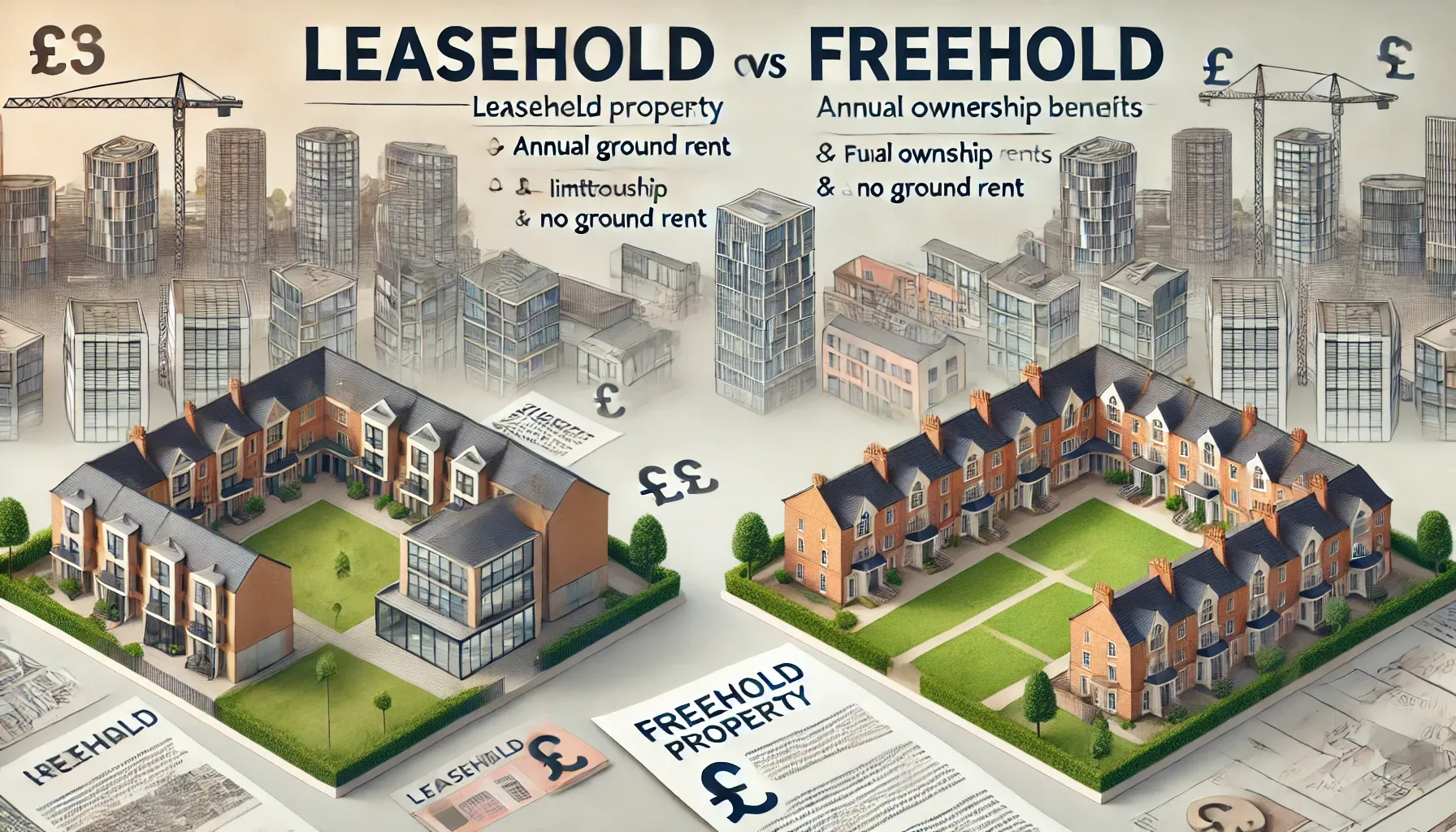What you need to know about property ownership in the UK: freehold and leasehold

- What are the main types of property rights in the United Kingdom?
- How to properly choose real estate in the UK considering leasehold and freehold?
Types of property rights in the United Kingdom
In the United Kingdom, there are two main types of property rights: freehold and leasehold. With freehold ownership, the owner receives comprehensive rights to the land and any buildings on it. This form of ownership allows for the property to be passed on to heirs after the owner's death.
The main restrictions that may arise with freehold are related to the rules governing construction and planning. However, overall, the freehold owner has significant freedom in managing their property.
This model is similar to the concept of property rights in real estate in Russia.
Features of leasehold
On the contrary, most residential properties in Britain are arranged in a leasehold format. In this case, the owner obtains rights to the apartment but does not own the land, which is owned by the freehold owner.
The landlord, or landowner, collects rent from tenants and is responsible for:
- repair
- keeping the building in proper condition.
The leasehold form is usually applied to apartments, but there are exceptions, especially in well-known areas like Mayfair and Chelsea, where the housing is situated on land owned by the Crown. This implies that with leasehold, there is essentially a rental of the land on which the building stands.
Lease obligations
Leasehold tenants are required to pay the landlord an annual ground rent, known asground rent, the size of which can range from 10 to 500 pounds.
Acquiring property in a leasehold format can bring not only the right to own an apartment but also additional obligations. Owners of such apartments may face:
- annual rental payments;
- restrictions on the improvement or alteration of the interior space;
- significant bills for "administrative expenses."
Leasehold terms
Leasehold terms can vary from one year to nine hundred and ninety-nine years. When acquiring a leasehold, the owner signs a contract that specifies the duration of the lease.
After this period, the property usually returns to the landlord. It is worth noting that freehold owners are generally willing to extend the leasehold term, but the process can require significant financial investment, sometimes reaching tens of thousands of pounds.
Risks and recommendations
However, the shorter the leasehold term, the less the property will be worth, as the process of extending the lease can be quite complicated and costly. This highlights the importance of thoroughly examining all the details before purchasing a leasehold.
Buyers should consider the following factors:
- financial consequences;
- restrictions on interior changes;
- administrative fees.
Thus, buyers should consider a number of factors before opting for leasehold, in order to avoid unexpected difficulties and expenses at later stages.
When buying property in the UK, it is extremely important to pay attention to the remaining term of the leasehold. For example, if this term is less than 50 years, it can create difficulties when obtaining a mortgage. Many realtors advise that the remaining leasehold term should be at least 70 years, and some experts even recommend 199 years for greater stability.
Issues with the rental period
Over time, owners of residential properties face the issue that the expiration of the leasehold leads to a decrease in the market value of their assets. As a result, many owners have questions about the possibility of acquiring freehold rights. According to British law, if a landlord decides to sell their rights to the property, they must first offer the leasehold owner the opportunity to purchase these rights, providing them with a certain period for consideration.
The "share of the freehold" system
In some apartment buildings, there is a system called "share of the freehold," which allows each apartment owner to purchase a share in a company created to obtain the freehold for a specific building. This enables homeowners to gain more rights and control over their property without significant costs, as extending the leasehold in this case does not require additional expenses.
Collective acquisition of freehold rights
After the reform of rental legislation that took place in 1993, apartment owners gained the right to collectively acquire the freehold, known as "joint freehold" or "commonhold." Typically, these apartments are located in small buildings with no more than five separate units. The owners become joint owners of the freehold, which requires the consent of more than 50% of the owners for a joint purchase. If the decision to acquire the freehold is made by only half of the owners, the cost of the freehold can double compared to the situation where all owners agree.
Disagreements among the owners
Nevertheless, joint ownership of freehold can lead to significant disagreements among participants, often resulting in the need to go to court to resolve conflicts. Holding rights to freehold can significantly increase the value of the property, creating more stable conditions for investment and providing protection for homeowners' rights. Therefore, it is crucial to carefully consider all aspects and potential threats related to leasehold and freehold in advance to avoid unpleasant situations in the future.
Key points when choosing real estate
- Please pay attention to the rental period.
- Find out about the possibility of extending the leasehold.
- Explore the possibility of obtaining freehold rights.
Finally, it is important to conduct a thorough review of documents and conditions, as discrepancies can lead to significant financial losses. Discussing relevant issues with experienced consultants and lawyers will also help avoid many pitfalls at this critical stage.
Conclusion
Thus, by considering all these aspects when purchasing real estate, you will be able to minimize risks and make a more informed choice, which will contribute to a successful investment of your funds and ensure property rights in the long term.

Conclusion
In conclusion, the topic of property ownership in the UK, covering both freehold and leasehold, is indeed a complex and multifaceted issue. I have tried to highlight the key aspects of each form of ownership and their potential implications for owners. It is important to understand thatfreeholdprovides complete and unlimited rights to property and land, making it similar to Russian property law. Whileleaseholdgrants limited rights, imposing additional obligations and payments, such as rent and possible restrictions on renovations.
When purchasing property on a leasehold basis, it is crucial to pay close attention to the lease duration.Short-term leaseholdIt may affect the cost of housing and complicate the process of obtaining a mortgage. Additionally, the practice of collective purchase of freehold or share of the freehold demonstrates how a community of residents can benefit from joint ownership and management of property. However, this can also lead to conflicts that sometimes require legal intervention.
Key points:
- Freeholdprovides full ownership of real estate and land.
- Leasehold imposes obligations such as rent and restrictions.
- The leasehold term is critically important for the market value of the property.
- A collective purchase of freehold can reduce costs, but it can also lead to conflicts.
Thus, every potential buyer should carefully research their options, weighing the pros and cons of each form of property ownership. Knowledge and understanding of their rights and responsibilities will help avoid unexpected financial risks and ensure stability in the future. Ultimately, the right choice can significantly increase the value of the property and provide a comfortable and safe living environment for owners and their families.
Comment
Popular Posts
9 October 2024
2799
9 October 2024
276
Popular Offers



Subscribe to the newsletter from Hatamatata.com!
Subscribe to the newsletter from Hatamatata.com!
I agree to the processing of personal data and confidentiality rules of Hatamatata


